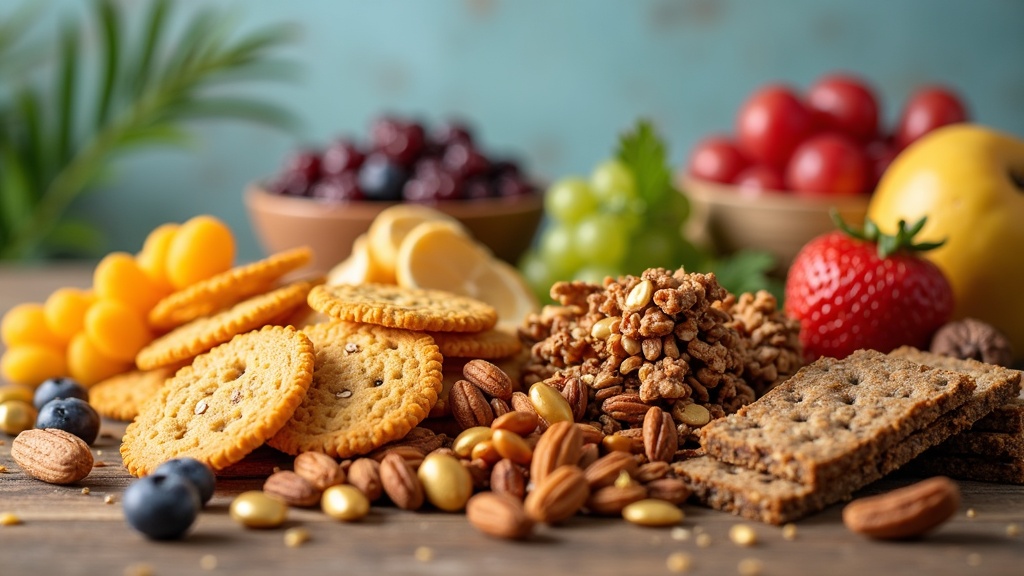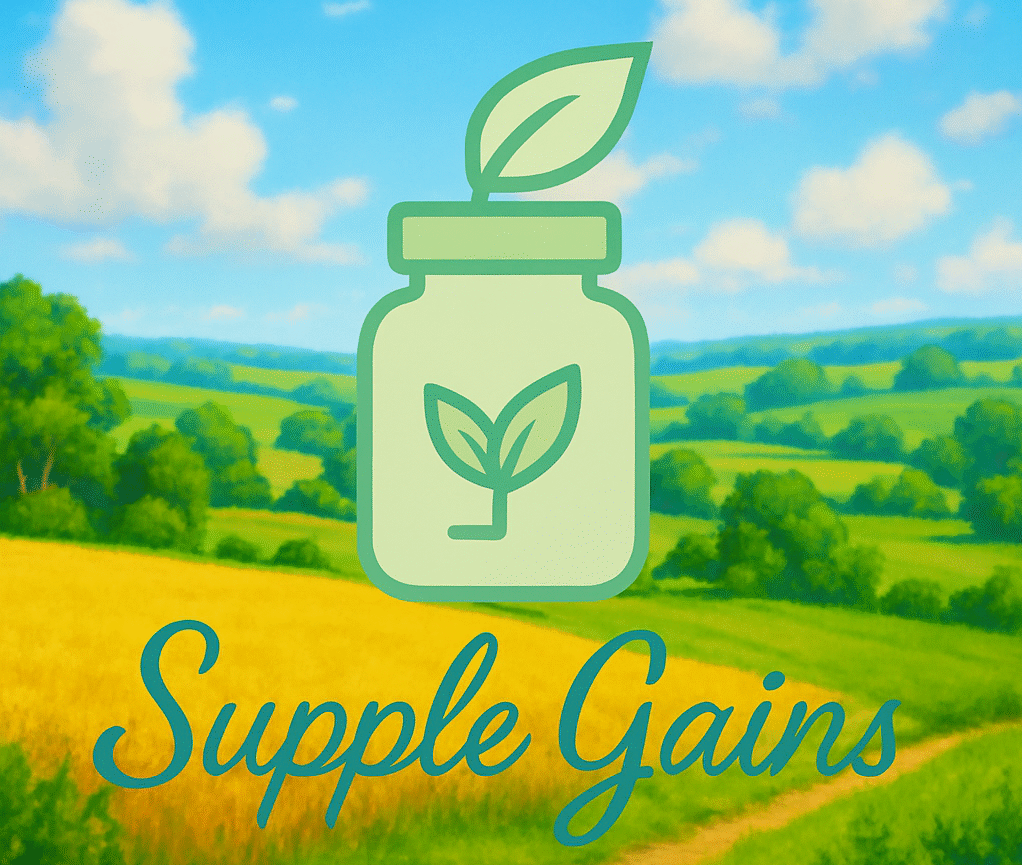Trying plantbased snacks for the first time or just looking for better options can feel like a maze.
These days, it seems like there are endless brands popping up at the grocery store with bright packaging boasting vegan, dairyfree, and all sorts of health claims.
I’ve spent a fair bit of time checking out these snacks and trying out new brands to find stuff that’s actually delicious and satisfying.
My goal here is to share what I’ve learned about picking plantbased snacks and talk about some brands and options worth digging into.

Why PlantBased Snacks Are Gaining Popularity
The plantbased snack market has exploded recently, with more people choosing these snacks for all kinds of reasons, whether it’s dietary needs, sustainability, or just plain curiosity.
According to Grand View Research, the global market for these products is on a steady climb, with more than just vegans and vegetarians getting in on the trend.
People are increasingly reading labels, looking out for snacks with betterforyou ingredients like whole grains, legumes, seeds, and natural sweeteners.
The idea isn’t only about cutting out animal products; it’s also about trying to eat foods with shorter ingredient lists and a lighter footprint on the planet.
That’s where plantbased brands come in.
They’re aiming to deliver snacks that are easy on the environment and our bodies.
Getting Started with PlantBased Snacks
Switching out your regular snacks for plantbased ones is easier than it seems.
The key is to focus on what you like: crunchy, sweet, salty, or even chewy.
Brands cater to all those cravings with everything from trail mixes and granola bars to cheeseflavored puffs (made without dairy, of course).
Here’s a quick rundown of the main types you’ll find on shelves:
- Protein Bars: Great for onthego munching, packed with nuts, seeds, or plant protein.
- Veggie Chips: Think dried or baked root vegetables, sweet potatoes, or kale, usually with natural seasonings.
- Dairyfree Dips and Spreads: Hummus, bean dips, and nutbased “cheese” are popular options.
- Crisps and Puffs: Made from things like lentils, chickpeas, or peas, they’re a handy swap for regular chips.
- Sweet Bites: Cookies, brownies, or bites using dates, coconut, and nuts. No eggs or butter needed.
Beyond these, you can find crunchy roasted seeds, fruit strips, and even plantbased jerky options that closely mimic traditional ones.
Exploring the world of plantbased snacks can be fun and rewarding, especially as you uncover options that match your taste and dietary preferences.
How I Judge PlantBased Snack Brands
With so many brands out there, it helps to have a few basics in mind when comparing options.
Here’s what I look for:
- Ingredients List: I go for brands that keep things simple and use whole foods as much as possible – think nuts, seeds, oats, and real fruit instead of mysterious additives.
- Taste: This is a big one. The flavor should be enjoyable, not just “good enough for a healthy snack.”
- Texture: A crunchy chip or chewy bar makes snacking a lot more satisfying and sometimes more filling, too.
- Nutrition: I check out the protein, fiber, sugar, and fat info to make sure I’m not just eating an expensive bag of air or sugar.
- Accessibility and Price: If I can’t find a brand easily or it’s way pricier than similar options, it’s less likely to become a regular buy.
Trying out several options in a small format first can help spot those special snacks that stand out on all these points.
Grocery stores now have plantbased sections or labels, making the hunt a lot easier than before.
Popular PlantBased Snack Brands on the Market
Here’s a look at some brands that keep showing up in my snack cabinet and on store shelves everywhere.
I’ve shone a light on what stands out most and what kind of snackers might like them.
- HIPPEAS: These puffs made from chickpeas come in flavors like Sriracha Sunshine and White Cheddar (no actual cheese). They’re light and crunchy, with a solid dose of plant protein. I like them as a swap for cheesy corn puffs.
- Biena: Roasted chickpeas are Biena’s thing, and they do it really well. The snacks are crunchy, a little salty, and come in bold varieties like Rockin’ Ranch. They also have thin, salty chickpea chips that I toss in salads for extra crunch.
- That’s It: True to the name, these fruit bars contain only fruit (sometimes fruit and chocolate, for special flavors). They’re a good choice for throwing in a backpack or work bag without worrying about added sugar or preservatives.
- MadeGood: If you’re after a nutfree granola bar (hello, school lunch box), MadeGood is worth a look. Their bars and balls are allergyfriendly, made with whole grains, and not too sweet.
- Rhythm Superfoods: These folks specialize in dehydrated veggie chips, like kale, beet, or carrot chips. I find these super handy when I’m craving something salty but don’t want to dip into a giant bag of potato chips.
- Brami Lupini Beans: A little different, but these marinated beans are high in protein and packed with flavor, with options like garlic or hot pepper. They’re great if you want something savory but not fried.
- Partake Foods: This brand makes cookies that are allergyfriendly, vegan, and glutenfree. The chocolate chip cookies are a favorite at home for kidfriendly snacking.
Other brands to consider include LesserEvil (for popcorn with healthy oils), GoMacro (macrobiotic-inspired protein bars), and Saffron Road (lentil chips with interesting spices).
Checking out local or regional brands can also turn up hidden gems, especially at farmers’ markets.
Things You Should Probably Consider Before Buying
Just like with any food, it pays to read the fine print.
Here are a few things I always check:
- Allergen Info: Plantbased doesn’t always mean nutfree or glutenfree. If you or anyone in your house has allergies, keep an eye on those labels.
- Added Sugar and Salt: Some snacks use plantbased sweeteners or sea salt, but the total amount can still be high, especially in energy bars or flavored chips.
- Serving Size: Snack bags can vanish much faster than expected, and sometimes the nutrition label only covers a tiny portion of the bag.
- Shelf Life: Snacks made with fewer preservatives might not last as long. I go for smaller packs if I know I won’t eat the whole bag in a week.
- Certifications: Look for thirdparty labels like NonGMO, USDA Organic, or Fair Trade if these matter to you. They aren’t everything, but they help back up some of the claims you see on packaging.
A Closer Look at Nutrition
Not every plantbased snack is automatically healthier than conventional options.
Some can be just as processed or packed with sugar.
For example, some energy bites are mostly sweetened with dates.
Still, they can run high in sugar.
When I’m choosing snacks, I look for ones that include protein or fiber to help fill me up, along with healthy fats from things like nuts, seeds, or coconut.
This makes the snack less likely to spike my blood sugar, keeping me full until my next meal.
Texture and Satisfaction
The texture is a big deal with snacks.
Crunchiness usually signals freshness, and a chewy snack bar should have a little bounce to it, not just mush.
This is especially true for plantbased cookies, which can sometimes get too crumbly or dry.
If a brand gets the texture right while keeping the ingredients simple, it’s usually a keeper for me.
Packaging and Sustainability
A lot of brands are starting to promote more ecofriendly packaging, like compostable wrappers or recycled cardboard.
While not perfect, it’s good to see new options aiming to lessen waste.
Some also participate in programs like TerraCycle for recycling hardtoprocess packaging.
If you’re thinking about the environment, this is worth having on your radar.
Advanced Tips for Enjoying PlantBased Snacks
I often pair snacks with fresh produce, like apple slices with almond butter puffs, or carrots with a spicy bean dip, to up both the nutrition and satisfaction factor.
Keeping preportioned snack packs in my bag makes it easy to stick to healthy eating if I’m out all day.
If you’re looking to make snacks at home, energy balls and roasted chickpeas are a breeze to whip up and customize to your liking.
Sometimes homemade beats store bought for both taste and price, and you’re in full control of ingredients.
If you’re interested in exploring even further, try making your own granola with oats, dried fruit, and seeds, or experiment with dried veggie chips in your oven or airfryer.
These options can be budgetfriendly and a fun way to involve kids or friends in your healthy eating efforts.
Frequently Asked Questions
Here are some questions I hear a lot from friends and readers trying out plantbased snack brands for the first time:
Question: Do plantbased snacks taste different from regular snacks?
Answer:
Sometimes, but often not as much as people think.
Brands have gotten really good at nailing “cheese” flavors and textures with things like nutritional yeast and pea protein.
Question: Can I find highprotein options in plantbased snacks?
Answer:
Yes. Lots of bars and puffs use pea or brown rice protein, nuts, seeds, or even lupini beans to add protein without any animal ingredients.
Question: Are plantbased snacks always healthier?
Answer:
Not always. Some can be just as processed or high in sugar as regular snacks, so it helps to look at the label and compare.
Question: What’s the best way to start trying plantbased snacks?
Answer:
Grab a few singleserve options of different textures and flavors on your next grocery trip.
Try protein bars, veggie puffs, or fruit leathers to see what you like best.
Switching everything at once isn’t needed.
Just swap one snack at a time and pay attention to what you genuinely enjoy.
Question: Are these snacks suitable for kids?
Answer:
Many plantbased snacks are now made kidfriendly, being nutfree, lower in sugar, and packaged in small portions.
Always check for allergens or schoolfriendly guidelines if packing for lunchboxes.
Choosing the Right Snacks for You
Plantbased snacks now cover so many tastes and dietary needs that there’s something out there for just about everyone.
Whether you care about nutrition, sustainability, or just cool new flavors, digging into different brands is the best way to find what fits your lifestyle.
Some snacks are perfect for an afternoon energy boost, while others are more of a treat.
Mixing it up helps keep things interesting, and you might even end up with a new favorite that you never expected.
Sticking with snacks that keep things simple, tasty, and easy to grab is really important for me.
The plantbased market is always changing with new ideas and improved classics.
Keeping an open mind and staying curious can make your plantbased snack adventure way more fun and full of discoveries.
